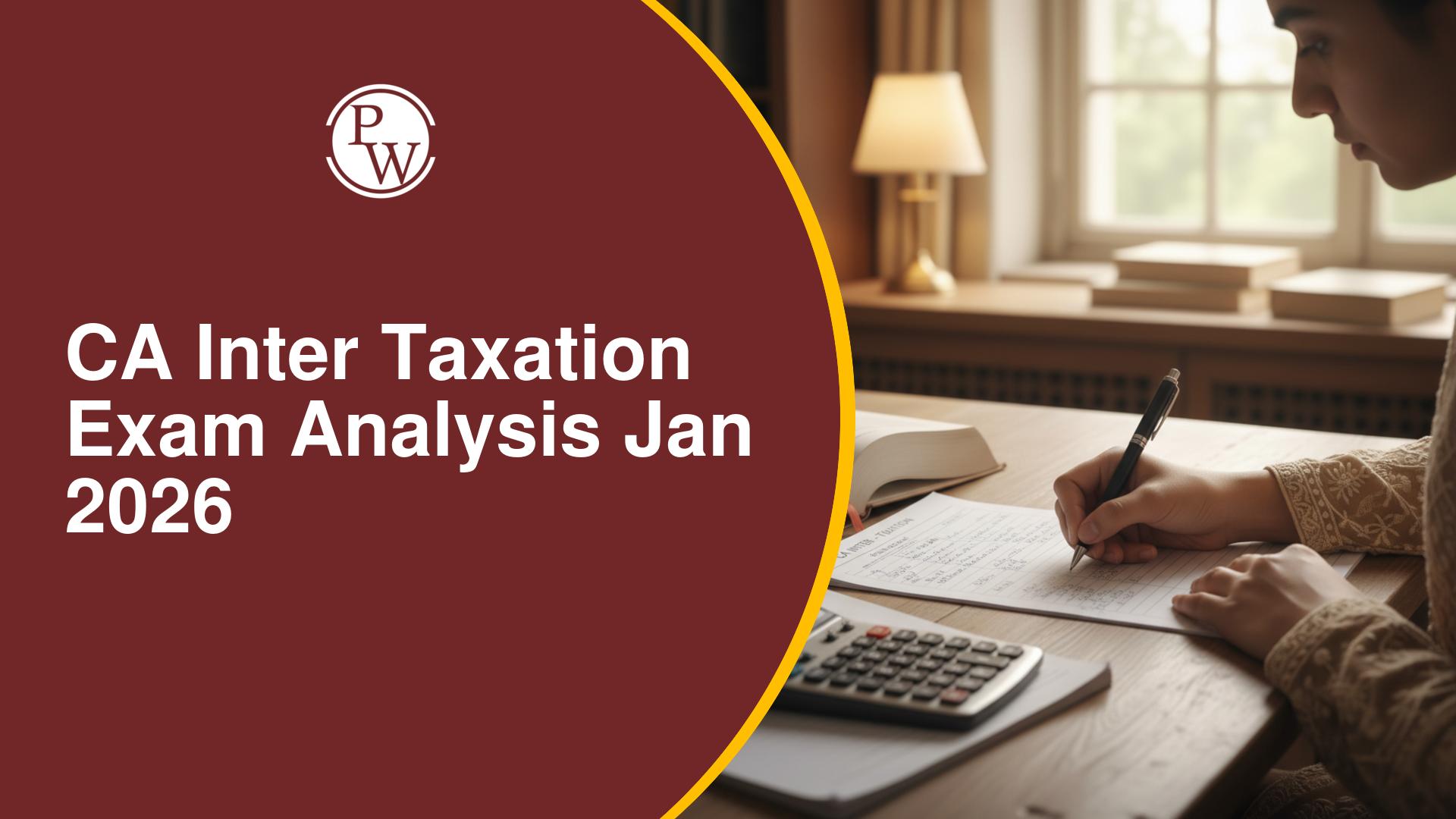
Understanding the Residential Status Under Income Tax Act is critical for CA students as it forms the foundation of income tax law. This status determines the scope of income taxation for individuals and entities in India. Often misunderstood, it is a concept that directly influences tax liabilities during compliance and filing processes.
This article delves into the classifications, implications, and calculations of Residential Status Under Income Tax Act for CA exams .What Is Residential Status Under Income Tax Act?
The concept of residential status under Indian tax law establishes the extent of tax liability an individual or entity holds in India. It is crucial to note that residential status under Income Tax Act is distinct from citizenship. For instance, an Indian citizen can be classified as a non-resident for a specific financial year. Similarly, a foreign citizen may qualify as a resident for tax purposes in India, depending on their stay and activities. The classification is significant because it determines whether global income or only Indian-sourced income is taxable. It affects how individuals and companies calculate their dues and comply with taxation laws in India.Classifications of Residential Status Under Income Tax Act
The Classifications of Residential Status Under Income Tax Act determine the scope of tax liability for individuals. Understanding these categories is essential for accurate compliance and planning under Indian tax law.Resident and Ordinarily Resident (ROR)
An individual is classified as a Resident and Ordinarily Resident (ROR) if they meet specific criteria outlined in the Income Tax Act. The primary condition is staying in India for 182 days or more during a financial year. Alternatively, the individual qualifies if they have stayed in India for 60 days or more in a financial year and 365 days or more in the preceding four years. The secondary conditions, defined under Section 6(6) of the Income Tax Act, further establish ROR status. These include a stay of 730 days or more in the previous seven years or residency in India for at least two out of the last ten financial years. Individuals classified as ROR are taxed on their global income, including income earned or accrued outside India. This classification is the broadest in terms of tax implications under the Income Tax Act.Resident but Not Ordinarily Resident (RNOR)
An individual is categorized as Resident but Not Ordinarily Resident (RNOR) if they do not meet all conditions required for ROR classification but still qualify as a resident based on their stay in India. RNOR status applies to those who have stayed in India for 730 days or more in the last seven years or were residents in at least two of the preceding ten financial years. RNOR individuals are taxed only on income that is sourced within India or income that arises abroad but is received directly in India. Unlike RORs, they are not liable for tax on their entire global income.Non-Resident (NR)
Non-resident individuals do not satisfy any of the conditions required for resident classification. Typically, this means their stay in India is less than 182 days during a financial year. They may also fail to meet the criteria of 60 days in the current year and 365 days over the previous four years. Non-residents are subject to tax only on income earned in India or deemed to accrue or arise in India. Their global income is exempt from Indian taxation, making their tax obligations significantly narrower than residents.Also Check: Accounting for Reconstruction of Companies
Implications of Residential Status Under Income Tax Act?
The implications of residential status are profound as they dictate the scope of taxation. Residents, specifically RORs, face taxation on their global income, covering earnings both in India and abroad. For RNORs and NRs, tax liability is confined to income sourced in India. Double Taxation Avoidance Agreements (DTAA) play a critical role for NR and RNOR individuals, as these agreements prevent the same income from being taxed in multiple jurisdictions. This ensures fair and equitable tax treatment for individuals engaged in cross-border economic activities.How to Calculate Residential Status Under Income Tax Act?
Calculating residential status begins with evaluating an individual’s stay in India during the financial year and the preceding years. The process involves determining if the individual meets the primary conditions of residency—182 days or more in India during the financial year or 60 days during the financial year and 365 days over the previous four years. Secondary conditions such as cumulative days spent in India over the preceding seven or ten years are considered for further classification into ROR or RNOR categories. Exceptions, including Indian citizens working abroad or visiting India, are also taken into account as specified in the Income Tax Act. Master challenging concepts like Residential Status Under Income Tax Act with PW CA Courses. Our expert-led curriculum, tailored for aspiring Chartered Accountants, ensures you excel in your CA journey. Join us today and achieve your dream of becoming a successful CA!| Also Check: | |
| AS 15 Employee Benefits | Process of Budget Making |
| Correlation and Regression | Probability |
| Construction Contracts | Trade Policy |
Residential Status Under Income Tax Act FAQs
What is the importance of determining residential status under income tax act?
Determining residential status is crucial as it defines the scope of income tax liability, ensuring individuals and entities comply with applicable tax laws.
Can a person be an Indian citizen and still be a non-resident for tax purposes?
Yes, residential status under the Income Tax Act is independent of citizenship. An Indian citizen can qualify as a non-resident based on their duration of stay in India.
What is the tax liability for non-residents in India?
Non-residents are taxed only on income earned or deemed to accrue in India. Their global income is exempt from Indian taxation.
How does RNOR status differ from ROR status?
RNOR individuals are taxed only on income sourced in India or received directly in India, whereas ROR individuals are taxed on their global income.
What is the role of DTAA in residential status taxation?
DTAA prevents double taxation by ensuring the same income is not taxed in multiple jurisdictions, benefiting NR and RNOR individuals.
Talk to a counsellorHave doubts? Our support team will be happy to assist you!

Check out these Related Articles
Free Learning Resources
PW Books
Notes (Class 10-12)
PW Study Materials
Notes (Class 6-9)
Ncert Solutions
Govt Exams
Class 6th to 12th Online Courses
Govt Job Exams Courses
UPSC Coaching
Defence Exam Coaching
Gate Exam Coaching
Other Exams
Know about Physics Wallah
Physics Wallah is an Indian edtech platform that provides accessible & comprehensive learning experiences to students from Class 6th to postgraduate level. We also provide extensive NCERT solutions, sample paper, NEET, JEE Mains, BITSAT previous year papers & more such resources to students. Physics Wallah also caters to over 3.5 million registered students and over 78 lakh+ Youtube subscribers with 4.8 rating on its app.
We Stand Out because
We provide students with intensive courses with India’s qualified & experienced faculties & mentors. PW strives to make the learning experience comprehensive and accessible for students of all sections of society. We believe in empowering every single student who couldn't dream of a good career in engineering and medical field earlier.
Our Key Focus Areas
Physics Wallah's main focus is to make the learning experience as economical as possible for all students. With our affordable courses like Lakshya, Udaan and Arjuna and many others, we have been able to provide a platform for lakhs of aspirants. From providing Chemistry, Maths, Physics formula to giving e-books of eminent authors like RD Sharma, RS Aggarwal and Lakhmir Singh, PW focuses on every single student's need for preparation.
What Makes Us Different
Physics Wallah strives to develop a comprehensive pedagogical structure for students, where they get a state-of-the-art learning experience with study material and resources. Apart from catering students preparing for JEE Mains and NEET, PW also provides study material for each state board like Uttar Pradesh, Bihar, and others
Copyright © 2026 Physicswallah Limited All rights reserved.









